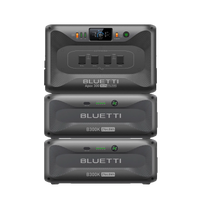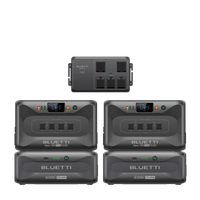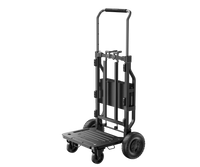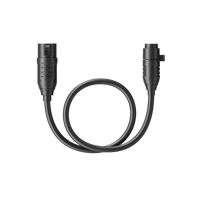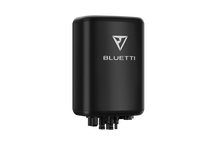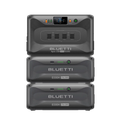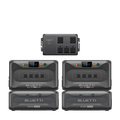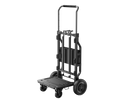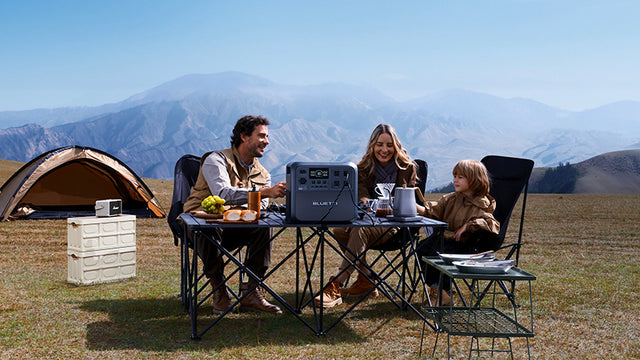Your cart is empty
Shop our productsUtilities are part and parcel of rented living spaces. These include electricity, water, gas, garbage, and various other bills. When planning to move into a rented space, don’t forget to account for utilities in your budget. Most utilities are charged monthly along with the rent. Disregarding utilities during budgeting can bring up severe problems. Imagine getting your electricity cut off due to nonpayment and or getting an evacuation letter from the homeowner.
This guide prepares you to deal with utilities better in 2024. It covers everything about billings and how to save on them. There’s no way you will enjoy utilities without disruptions, water shortages, electrical failures, etc, which can happen occasionally. What will be your course of action in such a situation? We’ll give clear guidelines on whom to reach out to get your issues resolved. Let’s explore utilities in detail;
What Are Some Common Utilities?

Getting inside an apartment after work you would turn on lights, prepare your bathtub for a bath, and throw out trash from yesterday. All these services you use are standard household utilities. What else can you think of as a utility? Let’s see;
Water and Sewerage
The water you use for different chores, bathing/showering, kitchen, and laundry is a utility. The used water going into sewers is also part of this utility. Every city has a municipality that maintains and bills water and sewerage for homes. The billing for water is straightforward and depends on usage. There’s a meter attached to pipelines which measures water usage.
You may or may not get a water bill; it usually goes to the homeowner. The water bill is for the whole house/apartment. It depends on your contract whether you’re bound to pay the water bill or your homeowner has adjusted an average amount for water usage in your monthly rent.
Electricity
The local utility company your homeowner subscribes to charges for electricity. You can create an account with the company and pay bills. The billing depends on usage, like number of appliances, lighting, heating/cooling, etc. It can be highly costly and take away a huge chunk of your income. The electricity costs change frequently; the one-month charges for certain units can be different from another month.
The homeowners do not pay electricity bills but rather ask tenants to have a separate account before moving in. In case you face issues like disconnections, or electrical failure in your locality, you would be in a better position to contact the service providers.
Gas
When moving to an urban or advanced locality, you should not expect gas availability. Although it may be present, gas consumption in homes is quite low. You would need gas only for a water heating system or a gas stove. Both these have electric alternatives, which are common and more practical. The local gas companies are responsible for gas supply and related issues.
The billing method for gas is similar to electricity. You can have an account with the company, and they’ll charge you according to the usage. The gas meters are attached to the supply line for measurements. Your landlord is not likely to deal with the gas company, he would ask you to pay the bills and manage your account.
Garbage Collection
The daily garbage you produce is collected by waste management companies. These will charge you fixed monthly amounts for the service. Large apartments include garbage collection fees in the rent. However, if you’ve rented an individual house, the bill will come to you. You can have an account with the company and pay the charges conveniently.
Most homeowners mention garbage collection fees in the contract. The charges are not high yet you will have to pay them.
Internet, Cable, and Security
Internet, cable, and security are always on the part of tenants. You have the choice to subscribe to any service provider for internet and cable. However, the security is managed by apartment managers/committees. The security may include CCTV maintenance, security officer, etc. Your landlord is more likely to inform you about these beforehand.
How to Estimate Costs for Utilities?
Most utilities like garbage collection, security, and the internet have fixed costs. You can browse different websites to check current rates in your locality. It’s recommended to compare multiple options to select the best. It’s not always about costs; the service reliability and customer support also count.
You may require estimation for electricity, gas, and water. These comprise a major portion of your utilities and are relatively costly. There are multiple factors that drive utility costs; some have a greater impact, while others may be insignificant. Let’s give you the blueprint to estimate your bills and manage the budget accordingly.
Apartment Size
The larger the apartment, the utilities consumption is likely to be higher. The heating/cooling system will consume more power. The number of bathrooms will increase water consumption. The charges may also vary as residential apartments have categorizations. You must account for all these factors in your estimate.
Weather
Electricity consumption patterns are highly impacted by weather conditions. If the winters or summers are extreme, the need for heating /cooling is higher. You’ll continuously run these systems, causing an increase in electricity bills. Estimate daily power consumption and the costs you may incur.
Appliances
The number of appliances you own and run is a contributing factor to utility costs. If you have multiple dishwashers, stoves, and air conditioning units, their usage will increase utility costs. For electrical appliances, check their wattages and estimate hours of usage; you’ll get a rough idea of daily energy consumption. Similarly, estimate gas and water consumption.
Light Fixtures
Some apartments can have excess lighting, which increases utility costs. You should use adequate lighting and check the energy-saving features of light fixtures. In case the light fixtures consume higher than 18 watt, you should change them.
How to Sign Up for Utilities?
It’s better to sign up for utilities after the contract with the landlord. You’ll save time and effort after moving in. You may face issues with utility companies, like opening new accounts or process delays. Signing up early will reduce much of the hassle.
Step 1: Find the best service providers in the area and compare rates, reliability, and customer support. You can ask your homeowner for the information or use the internet.
Step 2: Contact the companies and ask about their plans and timeframe for induction. They’ll guide you through the process and requirements.
Step 3: Provide essential information and documentation like name, address, and social security number. They will reach back with account details and subscription plans.
Once you sign up for the utilities, you’re all set to move in. There will be at least no issues with water, electricity, etc. However, dealing with movers and packers and setting up the house is a different hassle.
Minimize Your Utility Costs with Solar Kits
You must have noticed that the main cost driver for utilities is electricity. Its consumption and rates are both high. There’s one way to slash electricity costs from your utility bills: you will not have to pay a single penny. Sounds like savings? Installing a solar generator kit enables you to stay off-grid and power your house using solar energy.
The benefits are not limited to cost savings. You can save the environment with solar energy by reducing your carbon footprint. Solar energy keeps powering your house even during supply disruptions from the grid supply. The energy independence is next level, your house will act as a power plant. You can also sell electricity through net metering.
Thinking of getting your home a solar generator kit? The BLUETTI power solutions are the best option for you. The BLUETTI is the market leader in solar technology with an advanced range of solar generator kits. It stands out with hi-tech products, top-notch designs, and durable battery technology. Let us recommend you some BLUETTI products to start saving your utility costs:
BLUETTI EP800+B500 Home Battery Backup

The BLUETTI EP800+B500 Home Battery Backup is a complete power solution for homes. It has 9920Wh capacity to power all your appliances and devices. The power station supports 9000W solar input to enable the ultimate energy independence experience.
The battery packs have advanced LiFePO4 technology that ensures efficiency and longevity. You will also get control with the BLUETTI user interactive application that displays real-time data about system capacity utilization, charging status, etc.
The BLUETTI EP800+B500 Home Battery Backup is designed to seamlessly integrate with your existing electrical system. You will not need additional installations or disturb the wirings; it’s more like plug-and-play. It also comes with an EPS feature to provide an uninterruptible power supply.
BLUETTI AC500 + B300/B300S Home Battery Backup
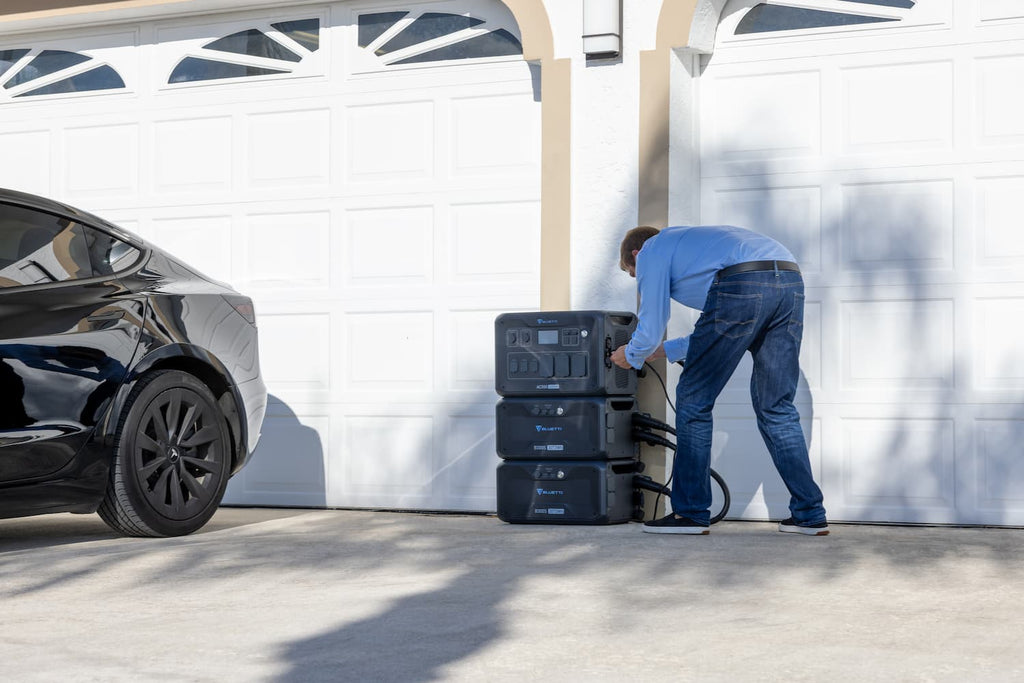
The BLUETTI AC500 + B300/B300S Home Battery Backup is a next-generation product with advanced features. It can take on your power needs with expandable Capacity From 3,072Wh to 18,432Wh. The power station comes with a multi-recharge facility for enhanced reliability.
You get LiFePO4 battery packs for 24/7 power access. The EPS feature is enabled to provide an uninterruptible power supply. The smart control app gives remote access for real-time monitoring. Additionally, you can use the touch display for convenient control.
You can use the BLUETTI PV420 Solar Panel with the system for complete energy independence. The solar panels have a high conversion rate. They’re durable and come with ETFE protection for water and dust. The design is foldable for easy storage when unused. The angle adjustment allows for increased conversion efficiency.
Wrapping Up
Are there any questions left? Our thorough guide has walked you through multiple aspects related to utilities and their costs. Now that you thoroughly understand utilities, the way forward is to make final estimations. Use the internet and our insights to get a rough estimate of your utility costs in your new home. Don’t forget to plan ahead and save money by installing solar kits. This investment today will allow you to save for the future!
Shop products from this article
Be the First to Know
You May Also Like

What Does a 30% Federal Solar Tax Credit Mean and How to Apply?
Governments around the world are offering programs that encourage homeowners to switch to solar energy. Among the most notable programs is the 30% Federal Solar Tax Credit. It reduces your...

Deadly Flooding Devastates U.S. South and Midwest — What You Need to Know















